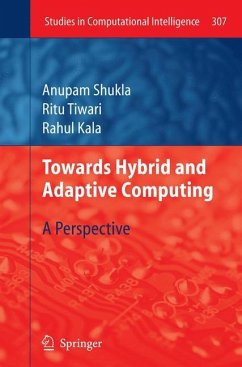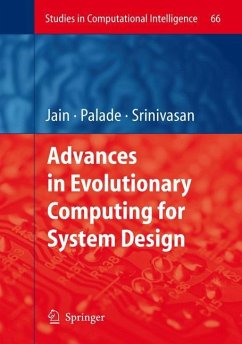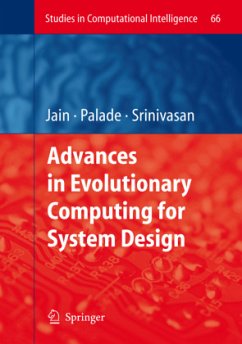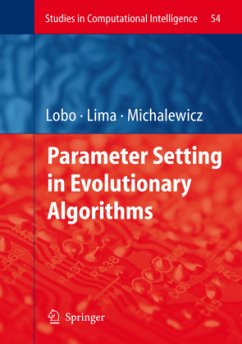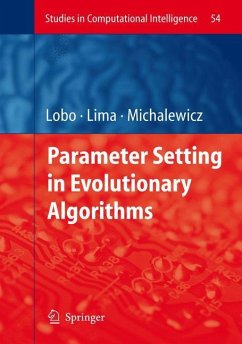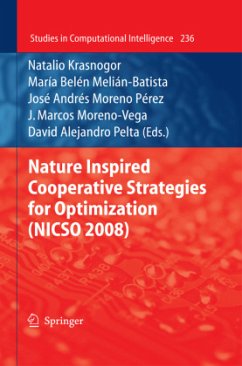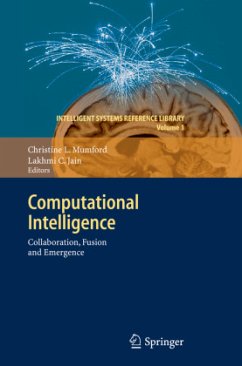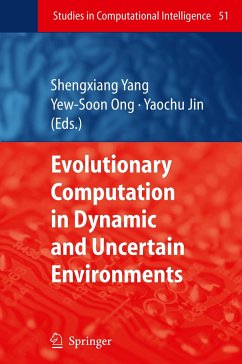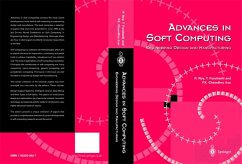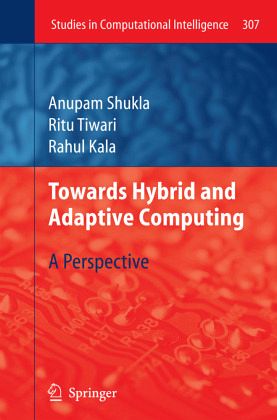
Towards Hybrid and Adaptive Computing
A Perspective
Versandkostenfrei!
Versandfertig in 6-10 Tagen
113,99 €
inkl. MwSt.
Weitere Ausgaben:

PAYBACK Punkte
57 °P sammeln!
Soft Computing today is a very vast field whose extent is beyond measure. The boundaries of this magnificent field are spreading at an enormous rate making it possible to build computationally intelligent systems that can do virtually anything, even after considering the hostile practical limitations. Soft Computing, mainly comprising of Artificial Neural Networks, Evolutionary Computation, and Fuzzy Logic may itself be insufficient to cater to the needs of various kinds of complex problems. In such a scenario, we need to carry out amalgamation of same or different computing approaches, along ...
Soft Computing today is a very vast field whose extent is beyond measure. The boundaries of this magnificent field are spreading at an enormous rate making it possible to build computationally intelligent systems that can do virtually anything, even after considering the hostile practical limitations. Soft Computing, mainly comprising of Artificial Neural Networks, Evolutionary Computation, and Fuzzy Logic may itself be insufficient to cater to the needs of various kinds of complex problems. In such a scenario, we need to carry out amalgamation of same or different computing approaches, along with heuristics, to make fabulous systems for problem solving. There is further an attempt to make these computing systems as adaptable as possible, where the value of any parameter is set and continuously modified by the system itself. This book first presents the basic computing techniques, draws special attention towards their advantages and disadvantages, and then motivates their fusion,in a manner to maximize the advantages and minimize the disadvantages. Conceptualization is a key element of the book, where emphasis is on visualizing the dynamics going inside the technique of use, and hence noting the shortcomings. A detailed description of different varieties of hybrid and adaptive computing systems is given, paying special attention towards conceptualization and motivation. Different evolutionary techniques are discussed that hold potential for generation of fairly complex systems. The complete book is supported by the application of these techniques to biometrics. This not only enables better understanding of the techniques with the added application base, it also opens new dimensions of possibilities how multiple biometric modalities can be fused together to make effective and scalable systems.



